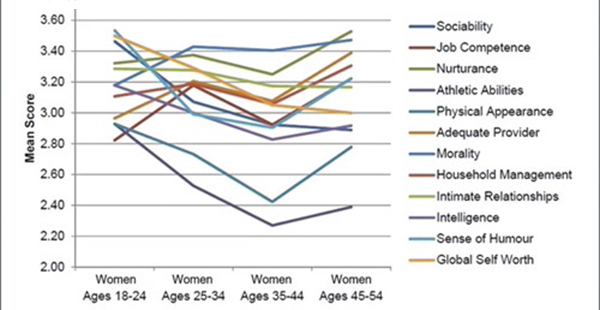Project diversity needs to address leaky pipeline professionals
Contents |
[edit] 'We can’t recruit our way to greater diversity'
In APM's latest article about issues affecting women in the project profession, Jenn Harris, Programme Manager at the Department for Environment, Food and Rural Affairs (DEFRA), discusses her research, which shone new light on factors preventing women from progressing in male-dominated industries.
"Of the small minority of women joining construction, the vast majority leave within five years.”
This statement by The Smith Institute, a public policy think tank, sums up the concept of ‘the leaky pipeline’; the way that certain groups of people fail to progress within particular careers or industries, leading to underrepresentation.
For Jenn Harris, this topic is of particular interest. Jenn has worked as a civil servant delivering projects and programmes for UK government departments for the past five years. Prior to this, she worked in the private sector within the construction and built environment industries. It was during this phase of her career that she was inspired to review gender disparity in the workplace, as part of her Master’s degree.
“I was really fascinated by how masculinities developed; especially in construction because it’s such a male-dominated industry,” Jenn said. “I was surrounded by young, ambitious women who had done apprenticeships and come in as trainees. But there were very few senior leaders that were women, and no women directors. Clearly, the profession was leaking female talent. I wanted to look at barriers for women entering, but also to them progressing and remaining. I also looked at coping mechanisms for women. What I wanted to know was ‘do women feel differently about themselves than men do throughout their careers’?”
[edit] The resulting report
Gender in the Construction Industry: Literature Review and Comparative Survey of Men’s and Women’s Perceptions in UK Construction Consultancies – The report examined these differences in self-perception between men and women. From her research, Jenn found that:
- For women, Global Self-Worth (i.e. their perception of worth, such as liking how they’re leading their life, or liking the kind of person they are) decreased significantly as they got older.
- For men, Global Self-Worth remained relatively constant throughout their lives.
Jenn also discovered through her research that women’s self-perception for other personal attributes follows a ‘dip and rise’ pattern through the age groups. This correlates with other research that has found women tend to have more complex ‘zig zag’ career paths.
- Source: Messer and Harter cited in Gender in the Construction Industry: A self-perception survey
[edit] Conclusion
The conclusion is that strategies to retain and develop female employees should take their career paths into account. Doing so not only represents a moral imperative, but can also result in a competitive advantage.
Jenn explained: “When you look at the leaky pipeline, you see that women only make up 12.5% of the construction industry workforce…GMB [the UK general trade union] has reported that it will take almost 200 years to achieve gender equality.
“Why does this matter? Gender diverse companies are 25% more likely to achieve above-average profitability. Also, construction companies with women in executive roles experience above-average financial performance.”
Jenn remains passionate about issues of equality and representation at all levels. She acknowledges the efforts of private sector employers and the government to address imbalance, and feels good progress has been made in recent years to address overt bias and discrimination. However, she expressed concern that ingrained biases may still be holding back women managing projects, programmes and portfolios.
Women to whom Jenn has spoken have expressed support for organisations to introduce quota systems to increase gender diversity at all levels of the workforce, as well as supporting inclusion of other underrepresented groups.
[edit] Zig zag career paths
She also urged employers seeking to address gender inequality to consider the notion of the ‘zig zag’ career path. Women leave the construction industry in greater numbers in their forties. Developing existing employees and recruiting women who are re-joining the workforce – rather than focusing exclusively on recruiting school, college and university leavers – can help stem the loss of talent and support retention that will help more women progress to senior-level roles. This will lead to greater diversity at leadership level, and overall.
“Lots of people are needed in construction to sustain it as an industry…women who are returning to work have a lot to bring to the table,” said Jenn. “A lot has been said about things like T Levels and bringing in new graduates. But what happens when someone leaves to have a child? Or to people who are seeking a career change after being in the military? That experience can give people so many skills that are transferrable in construction projects.
“It’s a multi-layered problem that involves not only private companies and government, but also individual actions, society – everyone. We all have a role to play in making our society more inclusive.”
This article appears as "'We can’t recruit our way to greater diversity'. Calls to address leaky pipeline in the project profession" dated February 2, 2023.
--Association for Project Management
[edit] Related articles on Designing Buildings
- Accelerating diversity key to delivering projects fit for end users.
- Accelerating black inclusion in project management.
- Building diversity in construction.
- Diversity, equality and opportunities in the construction industry
- Diversity in construction needs to be top priority.
- Diversity and inclusion statistics.
- Diversity in the construction industry.
- Levelling the playing field, womens views on achieving success in the project profession.
- Reflections on the Women in Project Management conference 2022 into 2023.
- Sustainability through diversity and multi-culturalism
- Unequal pay barrier for women in project management.
- Women in Project Management Conference.
Featured articles and news
OpenUSD possibilities: Look before you leap
Being ready for the OpenUSD solutions set to transform architecture and design.
Global Asbestos Awareness Week 2025
Highlighting the continuing threat to trades persons.
Retrofit of Buildings, a CIOB Technical Publication
Now available in Arabic and Chinese aswell as English.
The context, schemes, standards, roles and relevance of the Building Safety Act.
Retrofit 25 – What's Stopping Us?
Exhibition Opens at The Building Centre.
Types of work to existing buildings
A simple circular economy wiki breakdown with further links.
A threat to the creativity that makes London special.
How can digital twins boost profitability within construction?
The smart construction dashboard, as-built data and site changes forming an accurate digital twin.
Unlocking surplus public defence land and more to speed up the delivery of housing.
The Planning and Infrastructure Bill
An outline of the bill with a mix of reactions on potential impacts from IHBC, CIEEM, CIC, ACE and EIC.
Farnborough College Unveils its Half-house for Sustainable Construction Training.
Spring Statement 2025 with reactions from industry
Confirming previously announced funding, and welfare changes amid adjusted growth forecast.
Scottish Government responds to Grenfell report
As fund for unsafe cladding assessments is launched.
CLC and BSR process map for HRB approvals
One of the initial outputs of their weekly BSR meetings.
Building Safety Levy technical consultation response
Details of the planned levy now due in 2026.
Great British Energy install solar on school and NHS sites
200 schools and 200 NHS sites to get solar systems, as first project of the newly formed government initiative.
600 million for 60,000 more skilled construction workers
Announced by Treasury ahead of the Spring Statement.




























Comments
[edit] To make a comment about this article, click 'Add a comment' above. Separate your comments from any existing comments by inserting a horizontal line.